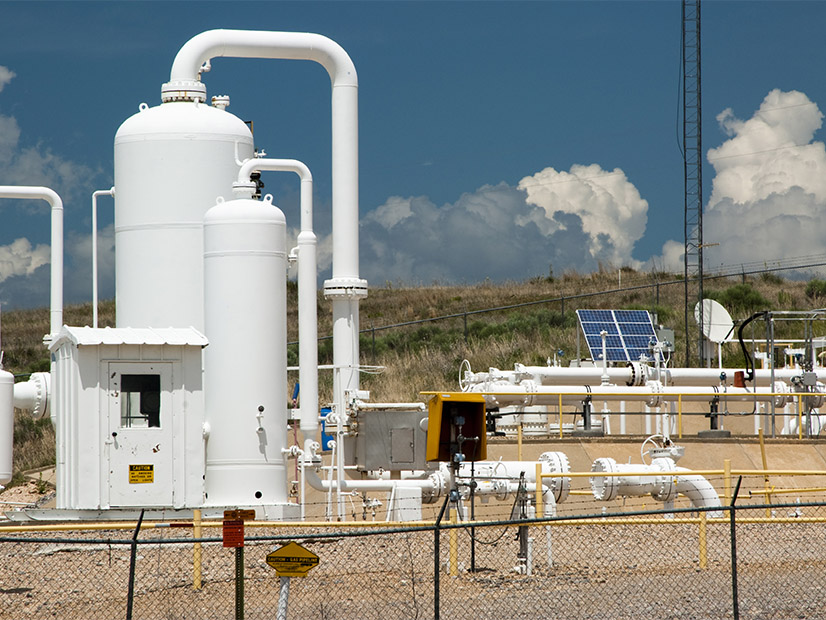
Responsibly sourced natural gas (RSG) is now a “sizeable” and “growing” market, according to Andrew Swinick, commercial director at Kinder Morgan (NYSE:KMI).
The market is “driven by voluntary efforts to do better when it comes to our business practices,” he said Tuesday at the Northeast Gas Association’s Regional Market Trends Forum. “In 2018, we had only five companies that had committed volumes to RSG, and today we’re looking at 28.”
RSG, also called producer-certified gas, is a third-party-certified product based on a supplier’s ability to demonstrate it has reduced environmental impacts from its product and operates under best practices of environmental, social and governance (ESG) criteria.
“Right now, the goal of RSG is to minimize emissions along the natural gas value chain and to continuously look at ways to reduce those emissions levels,” he said. More suppliers are turning to RSG in response to end-user demand that Swinick says “is growing radically and dramatically.”
The three major certifying entities in operation currently are the nonprofits Equitable Origin and MiQ, and TrustWell by data analytics company Project Canary.
Certification is based on an ISO-like framework that “provides verification of responsible practices through rigorous independent audits, like emission reductions, no flaring and methane monitoring,” said Jeff Formica, vice president of environmental, safety, health and quality at Seneca Resources.
Seneca achieved Equitable Origin certification for 100% of its Appalachian assets in December 2021, according to Formica. The facility-level certification, he said, ensures that companies are always working to improve their ESG practices.
MiQ, which is also a facility-level certification, targets methane-intensity reduction by understanding how much methane a producer’s facilities emit versus the amount of natural gas they produce. It also ensures certified entities have comprehensive monitoring technologies in place to detect unintended emissions, Formica said.
The TrustWell certification works at the level of the gas well to reduce greenhouse gas emissions, set responsible water stewardship plans, mitigate operational risks and understand community needs, he said.
Growth Opportunity
Kinder Morgan, the largest U.S. gas pipeline company, could receive approval from FERC in the coming weeks for a new market mechanism that would support expansion of RSG.
The company filed a tariff, via its Tennessee Gas subsidiary, with FERC in December that would allow it to secure contracts specific to transporting RSG on its pipelines (RP22-417-001). Suppliers would need to demonstrate that they meet a predetermined, methane-intensity level certified by TrustWell to qualify for the tariff.
If FERC allows the company to move ahead with the new service, it would “encourage the transportation and trading on the Tennessee system of RSG supply from producers,” Kinder Morgan said in its tariff filing.
The company’s customers have shown broad support for the concept, according to Swinick, who said that Kinder Morgan expects to see an order from FERC in the coming weeks allowing service to begin May 1.
Producers see the offering as an “attractive” option, he said.
The Environmental Defense Fund asked FERC to “carefully consider” the program in a Jan. 24 filing and called for a technical conference.
“As the first request for FERC approval of an RSG-type program, Tennessee’s filing has the potential to create a significant precedent for the pipeline industry more broadly,” EDF said.
Consolidated Edison (NYSE:ED) commended Kinder Morgan in a Feb. 22 filing for taking a step that it said will allow customers to procure RSG, and the utility encouraged other interstate pipelines to provide a similar option.
The service will “aid natural gas distribution companies … in their efforts to reduce upstream greenhouse gas emissions associated with production or gathering of natural gas,” Con Ed said.


